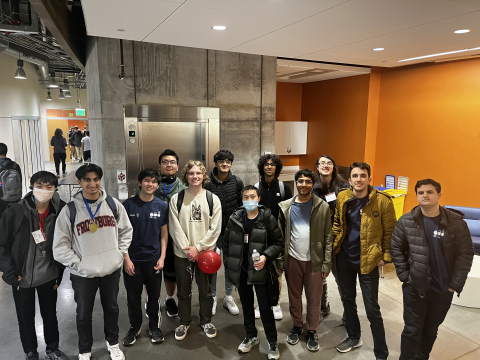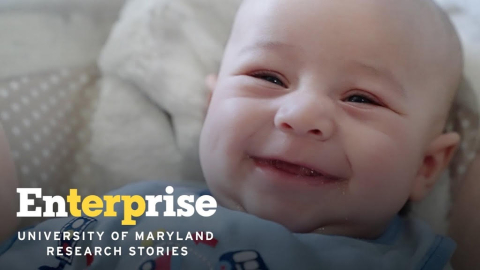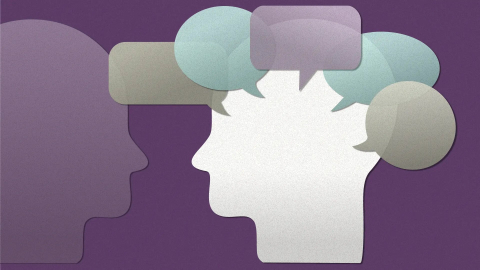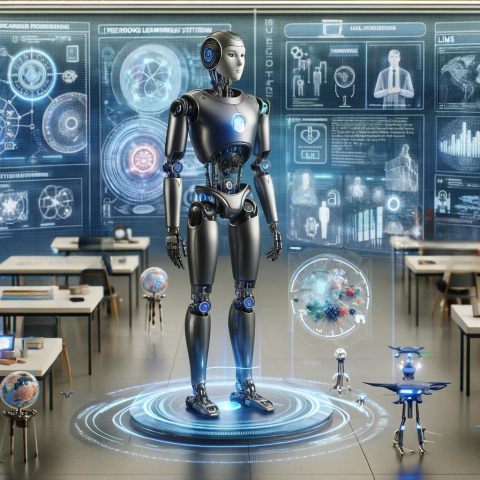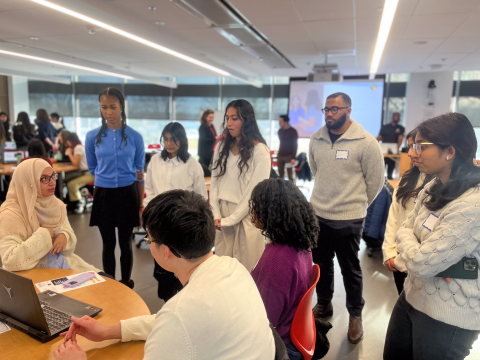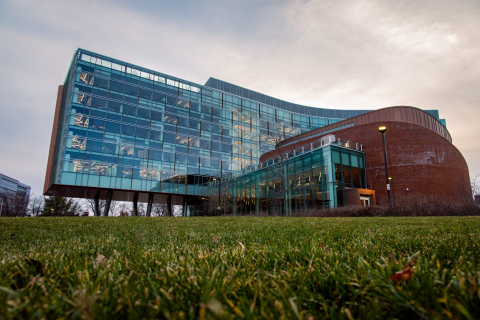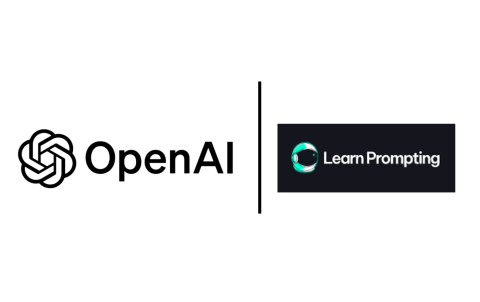Recent News & Accomplishments
2024
Graduate student Shayan Chashm Jahan and undergraduate students Colin Galen and Cheng-Yuan Lee advance to the North American Championship.
A student team from the University of Maryland’s Department of Computer Science won the International Collegiate Programming Contest (ICPC) North American South Division championship on February 24, 2024, at John Hopkins University. The victory placed the group at the forefront of the competition, which saw participation from 138 teams across the Mid-Atlantic, South Central and Southeast regions, representing 55 universities. Representing UMD in the competition were graduate student Shayan Chashm Jahan and undergraduate students Colin Galen and Cheng-Yuan Lee. Guided by their coach, Professor... read more
New chatbot puts trusted health intel at new mothers’ fingertips.
Baby’s first bath, a 3 a.m. fever and technicolor spit-up can elicit a range of emotions from first-time mothers—and just as many questions. An AI-based chatbot in development by University of Maryland researchers is working to take some of the confusion and uncertainty out of parenting, particularly for women of color. Called “Rosie," the phone-based bot was developed with support from a $3 million grant from the National Institute on Minority Health and Health Disparities. The system provides accurate, 24-hour health and wellness information for questions like medication dosages,... read more
New UMD study seeks to decipher ‘imagined speech’ in the brain.
“Tell me what you’re really thinking” rarely gets a straightforward response, even from the most candid individual. But for those trying to reach someone who’s unable to communicate, even a hint would be welcome as they wonder if the person is in pain or needs something. A new study into how we “imagine” speech by researchers at the University of Maryland may one day help reveal a person’s inner monologue by transforming the jagged blips of neuroactivity on a brain scan into words. “This capability could be transformative for people who are fully active in the mind, but unable to communicate... read more
They urge robot manufacturers to conduct additional safety research before integrating language and vision models into their hardware.
Computer scientists at the University of Maryland have asked robot makers to do further safety research before wiring language and vision models to their hardware. Given the constant stream of reports about error-prone, biased, opaque LLMs and VLMs over the past year, it might seem obvious that putting a chatbot in charge of a mechanical arm or free-roaming robot would be a risky move. Nonetheless, in its apparent eagerness to advance the field, the robotics community has pressed ahead with efforts to wed LLMs/VLMs with robots. Projects like Google's RT2 vision-action-language model, the... read more
Students displayed innovative tech projects and cultivated professional skills in a collaborative, industry-supported setting.
Break Through Tech DC at UMD held its second Career Launch Expo on January 23, 2024, at the Brendan Iribe Center for Computer Science and Engineering . At the event, students exhibited tech projects comprising mobile and web applications and refined their presentation skills. Under the umbrella of the Iribe Initiative for Inclusion and Diversity in Computing (I4C), Break Through Tech’s Career Launch program serves as a platform for women, nonbinary individuals and other underrepresented groups in the tech community to participate in active collaboration, networking, design thinking and... read more
In an interview with Roadmap Magazine, Daumé emphasized the need to stop worrying about autonomous AI systems and start prioritizing systems that help people.
As a Volpi-Cupal Professor of computer science at the University of Maryland, Hal Daumé III thinks a lot about how machines learn language. He also thinks a lot about trust: he leads the Institute for Trustworthy AI in Law & Society (TRAILS) . Roadmap spoke with him about all of the above—plus béchamel sauce, toddlers and The Terminator. What are you working on right now? In a professional capacity, I’m trying to understand how we can make AI systems work better for people and work better for society. A lot of that is trying to understand the technical piece, the traditional computer... read more
Gossiping offers unexpected benefits beyond idle chitchat, according to a study conducted by UMD and Stanford researchers.
Rumormongers, blabbermouths, busybodies—no matter what you call them, gossipers get a bad rap. But new theoretical research conducted by University of Maryland and Stanford University researchers argues that gossipers aren’t all that bad. In fact, they might even be good for social circles. Gossiping—defined as the exchange of personal information about absent third parties—can provide a “social benefit,” according to the researchers. Their study revealed that gossip is good at disseminating information about people’s reputations, which can help recipients of these tips connect with... read more
Capital One created a campus Tech Incubator at UMD, where students worked on emerging AI and ML capabilities that will transform the financial services industry.
The rapidly changing landscape of artificial intelligence and machine learning requires us to think differently about how we prepare students to advance in this evolving field. Capital One created a campus Tech Incubator at the University of Maryland, where students worked on emerging AI and ML capabilities that will transform the financial services industry. UMD’s Tech Incubator opened in the fall of 2018 and celebrates its five-year anniversary this year. The unique center provides students the opportunity to apply their curriculum in hands-on roles through student employment at Capital One... read more
In 2021, UMD joined the Aspire Alliance, renowned for its commitment to addressing underrepresentation in STEM from marginalized backgrounds.
When Elias Gonzalez was a student at the University of Maryland, he looked up to his computer science professor Nelson Padua-Perez both as a Latino professor and as a Spanish speaker. Gonzalez, now a computer science lecturer at this university, said his former professor remembered him because they spoke the same language. To him, that experience illustrated the importance of having diverse faculty, Gonzalez added. “Diversity means having all that diverse background and having all those lived experiences that are different,” Gonzalez said. “Anytime we can insert that into our sequence, I... read more
Through his startup LearnPrompting, Schulhoff developed a free online course that teaches the basics of using ChatGPT as your very own personal assistant.
Artificial intelligence (AI) is changing our interactions with technology and challenging our perceptions of machine intelligence. By automating routine tasks, AI is driving innovation in critical sectors like finance, health care and transportation. As this technology continues to advance, it’s vitally important for individuals to be able to understand and effectively communicate with AI. University of Maryland computer science major Sander Schulhoff is addressing this need. Through his startup LearnPrompting , he launched an online course on AI literacy called “ChatGPT for Everyone” in... read more
